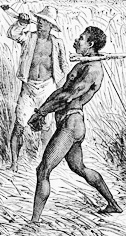MY BLOG TRACKER THINGIE has 25 different flags on it. I know it's childish but I get so excited when I see a new country listed; I only expect my blog to be read by one man/woman and a dog, and in the main I suspect that is a pretty accurate analysis of my readership....but....dear blog reader from Peru, welcome! I'm so delighted to see you here, thank you for popping in.
READING:
I keep trying to plug the gaps in my reading experience, catching up with books that are so famous that it is assumed that absolutely everyone has read them - and yet some how you never have. One such book is Peyton Place by Grace Metalious, which was written exactly 50 years ago. Because I was too young to read it when it was first published, and because I grew up in central Africa and had no TV and little access to cinema, I have never seen the film nor the TV series which sprang from the book, so I thought it was just a salacious American best seller of little literary merit. Earlier this year I heard an extract read on Radio 4, and decided that the time had come that I should read it for myself. To my surprise it turned out to be a much better book than I had expected, and a very absorbing read.
Peyton Place is the name of a small (fictitious) New England town in the years just before the Second World War It is a town which looks like the quintessential American community, as wholesome as apple pie, a town like thousands of others all over the USA. Metalious strips away the veneers of respectability to expose the secrets and lies of the inhabitants of Peyton Place.
The story of teenager Allison McKenzie and her mother Constance provide the framework of the book. Constance has built a life based on a lie; everyone, including her daughter, thinks she is a young widow bringing up her daughter on her own. In reality, Allison is illegitimate and Constance is terrified of the reaction of others if they knew the truth, she is obsessive about protecting her daughter from making the same mistake as she made, and her controlling behaviour is driving a wedge between them. Surrounding Constance and Allison are the other characters who live in the town, and the reader is drawn in to their lives and stories. There is Kenny, the town drunk who goes on a massive six week bender and nearly kills himself; Selena, a girl of Allison’s age but from the wrong side of the tracks, who has been sexually abused and raped by her stepfather – eventually resulting in her pregnancy and an illegal abortion; Rodney Harrison, the spoilt son of the richest man in town who dies when he crashes the sports car given to him by his doting father; the local doctor, Dr Swain who manages to force Selena’s stepfather to leave Peyton Place by threatening to reveal his behaviour to the community. All the various strands are woven together to give the reader a sense of small-town prurience, predjudice and hypocrisy.
the book. Constance has built a life based on a lie; everyone, including her daughter, thinks she is a young widow bringing up her daughter on her own. In reality, Allison is illegitimate and Constance is terrified of the reaction of others if they knew the truth, she is obsessive about protecting her daughter from making the same mistake as she made, and her controlling behaviour is driving a wedge between them. Surrounding Constance and Allison are the other characters who live in the town, and the reader is drawn in to their lives and stories. There is Kenny, the town drunk who goes on a massive six week bender and nearly kills himself; Selena, a girl of Allison’s age but from the wrong side of the tracks, who has been sexually abused and raped by her stepfather – eventually resulting in her pregnancy and an illegal abortion; Rodney Harrison, the spoilt son of the richest man in town who dies when he crashes the sports car given to him by his doting father; the local doctor, Dr Swain who manages to force Selena’s stepfather to leave Peyton Place by threatening to reveal his behaviour to the community. All the various strands are woven together to give the reader a sense of small-town prurience, predjudice and hypocrisy.
When it was first published in 1956, the book became an instant best seller; it touched a nerve in the American reading public, and sold 60,000 copies in the first ten days following publication, eclipsing Gone with the Wind. Peyton Place became a defining book, apart from the follow up novel written by Metalious herself (Return to Peyton Place), various other “sequels” have been written by other people, there was a Hollywood movie, and then a long running TV series. The blockbuster TV series of recent years, Desperate Housewives and Sex in the City are very much descendents of Peyton Place. Sadly, after the book was published Grace Metalious and her family were reviled by her neighbours and fellow citizens in the New England town where they lived. The stress caused by their continual shunning of her turned her to drink, and she died aged 39 of cirrhosis of the liver.
RANTING: Yesterday Tony Blair made a statement of regret about the practice of slavery, which Britain abolished 200 years ago. Some black pressure groups felt that he should have apologised on behalf of the British people for the fact that slavery had taken place at all. What a load of rubbish, this is gesture politics at its most cynical.
If we all start apologising to one another for wrongs done by our ancestors there will be no end to it. The only person who can genuinely apologise for something, is the person who did the wrong. The people who initiated, enabled, or profited from slavery are long dead, we are living in different times. I am not responsible for slavery, I loathe the idea of slavery - I certainly have nothing to apologise for, and I resent the idea that our Prime Minister should even consider apologising on my behalf and that of my fellow citizens.
apologising on my behalf and that of my fellow citizens.
There seems to be a deep-seated belief within some sectors of the black population here and in the USA that any current troubles they may have are as a result of slavery hundreds of years ago, and they want financial compensation to be paid to the descendents of slaves. A distorted myth has grown up, which bears no relation to the true facts about slavery. Slavery was a horrible business, and it is a sad fact that the British engaged in it, but apologising will do nothing for anyone, we can’t go back in time. History marches on.
Slavery has existed for thousands of years, and in virtually every culture of humankind. The Chinese, Egyptian, Babylonians, Greeks, Romans, Persians, Goths, Arabs, and Ottomans have all bought, sold and used slaves. Ancient Britons were taken as slaves by Romans, and owned slaves in their turn. Slavery existed in Africa long before the British or other western nations went to Africa, and it is still going on today, albeit illegally. Some in Africa are still engaged in selling men, women and children into other societies. In South East Asia women and children are kept as virtual slaves to the sex trade. Young girls in Afghanistan and other central Asian countries are sold by their fathers to be “wives” to old men, and they then live lives that are tantamount to slavery. Rather than apologising we should all be doing our best to ensure that a stop is put to slavery as practiced in the world today.
RECIPE:
BUTTERNUT, BACON & FETA PASTA
Serves 4
1 Butternut Squash 
1 Tablespoon Olive Oil
200g Feta, drained and cubed
1 clove garlic, crushed
50g Pine Nuts, toasted
1 teaspoon dried Oregano
8 rashers of smoked back bacon
350g Farfalle or Penne Pasta
Pre-heat oven to 200° C, Gas Mark 6.
Cut the Butternut in half, scoop out and discard the seeds.
Peel the squash and then cut the flesh into bite-sized chunks and place in a roasting tin.
Drizzle with the olive oil, stir in the garlic and oregano and season with freshly ground black pepper. Roast for 20-25 mins, stirring occasionally, until the squash is golden and tender when pierced with the tip of a sharp knife.
Pre-heat the grill to high, and cook the bacon for 4-5 mins until crisp, then cut into bite-sized pieces. Meanwhile, cook the pasta in a large pan of boiling water until al dente in the usual way, drain well and keep warm in the pan with a lid on.
Add the bacon and feta to the roasted squash and return to the oven for 2-3 mins until the cheese is beginning to soften and melt. Remove from the oven and stir in the drained pasta.
Serve immediately seasoned with freshly ground pepper and the toasted pine nuts scattered over the top.
 DECK THE HALLS WITH BOUGHS OF HOLLY, TRA LA LA LA, LA. LA. LA TIS THE SEASON TO BE JOLLY, TRA LA LA LA LA
DECK THE HALLS WITH BOUGHS OF HOLLY, TRA LA LA LA, LA. LA. LA TIS THE SEASON TO BE JOLLY, TRA LA LA LA LA




























